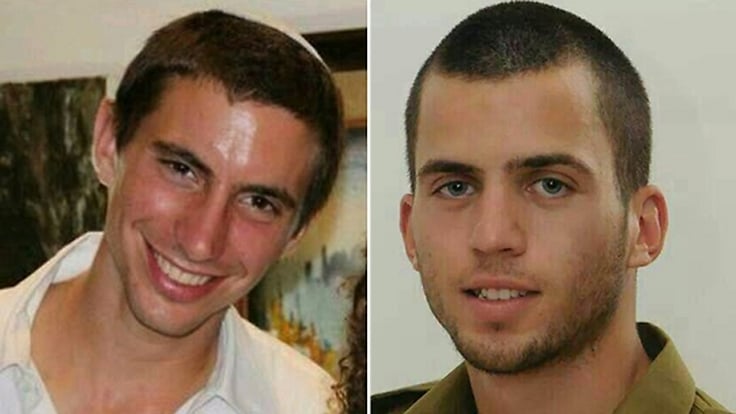The European Union’s Foreign Affairs Committee adopted a resolution on Wednesday declaring that Hamas and the Palestinian Authority break international law by holding the remains of IDF soldiers.
By: World Israel News Staff
At a meeting on Wednesday in Brussels, the European Union’s Foreign Affairs Committee ruled that the Palestinian Authority and Hamas continue to violate international humanitarian law by refusing to return the body of captured IDF Lieutenant Hadar Goldin.
Goldin was killed in 2014 amid a UN-brokered ceasefire during Operation Protective Edge. Since then, Hamas has held his body, along with the body of IDF soldier Oron Shaul.
On Wednesday, the EU committee adopted a resolution on the matter during a special session attended by the Goldin family, at which representatives of Romania, Hungary and the Netherlands demanded that all Gaza humanitarian assistance be conditioned on the return of captured Israeli civilians and IDF soldiers currently held by Hamas.
The meeting, officially titled “The Humanitarian Rights of Hadar Goldin,” was attended by representatives of all members of the European Parliament, in addition to several of Goldin’s family members, including his mother, Dr. Leah Goldin, and his twin brother Tzur.
The resolution designates the return of soldiers and civilians held in Gaza as a humanitarian issue that the EU is obligated to address.
Dr. Goldin explained to the assembled, “I am not a state leader … I’m here because I want to bring my son to be buried, as any mother, anywhere in the world, would do in a similar situation. I’m here because I want to do justice for Hadar,” reported Arutz 7.
“The aid [the European Parliament] sends to Gaza is precisely why you have the ability to act against Hamas. That’s the source of our hope,” added Goldin.
Tzur Goldin also addressed the meeting, declaring, “[I]t is not fair that there has been almost no initiative regarding the solution to the return of my brother and the other Israeli prisoners from Gaza, no initiative from this place that calls itself the ‘gatekeeper of humanitarian rights in the world.'”



